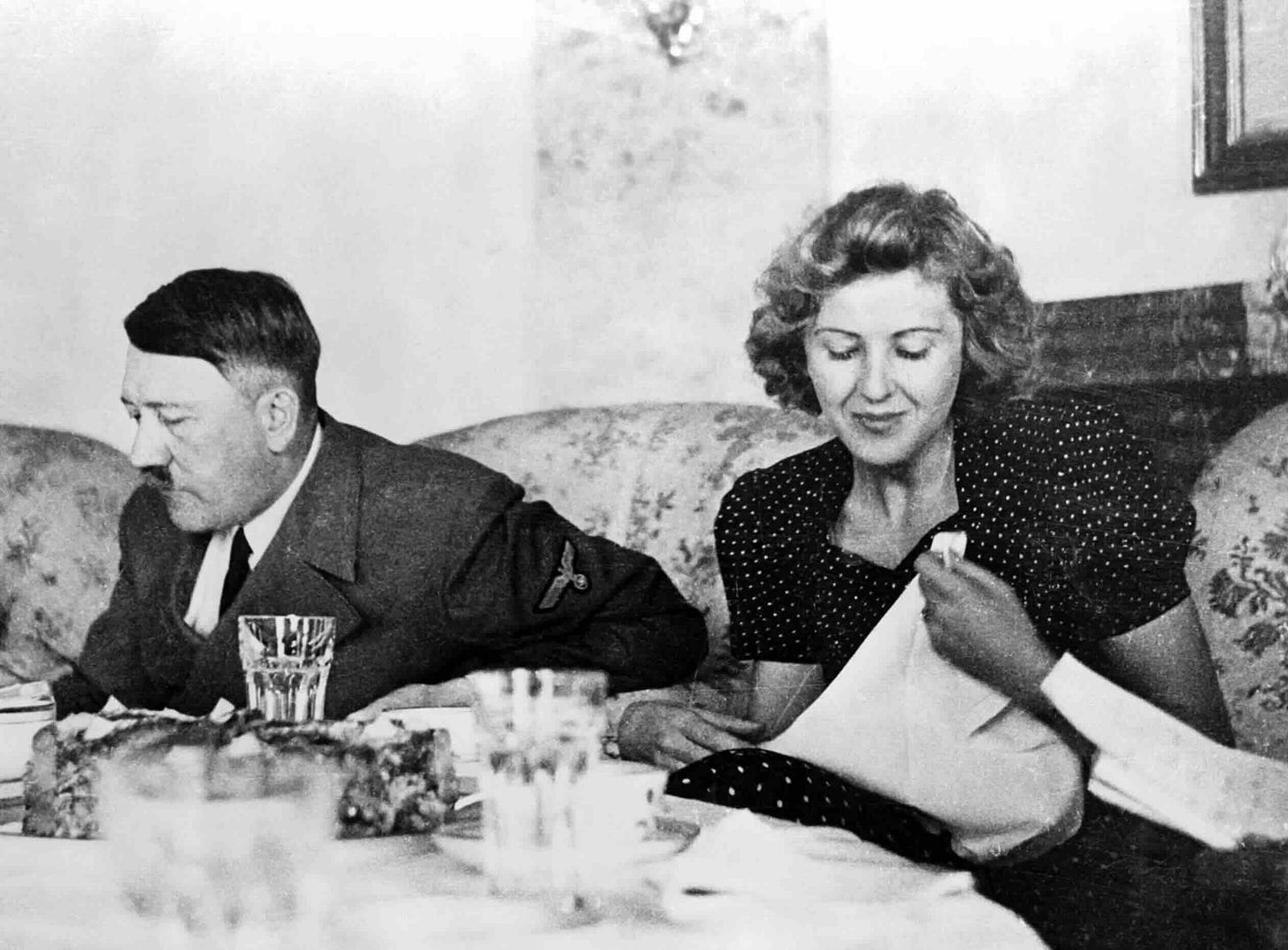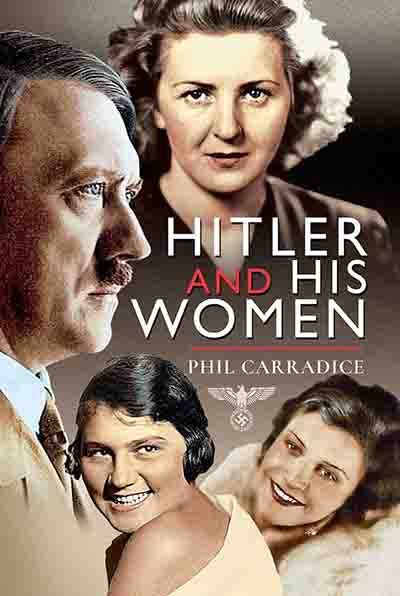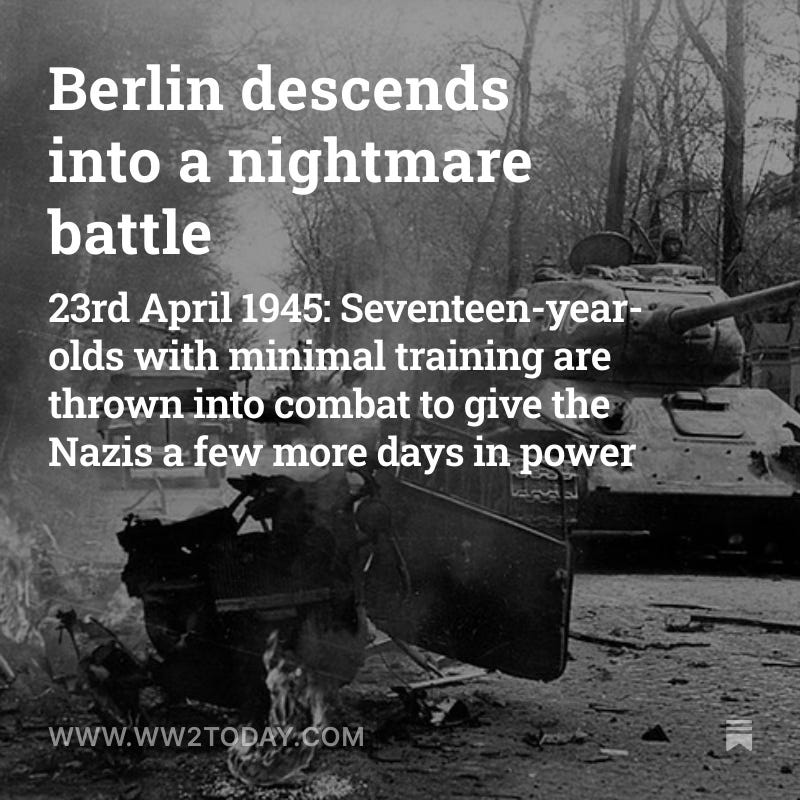Eva Braun's last days
An excerpt from 'Hitler and His Women' - a detailed study of all the women in Hitler's life
The last days of the Nazi regime have a peculiar fascination. It seems that everyone, of any significance whatsoever, who was present during the final days in the Führerbunker was interviewed after the war. The epicentre of Hitler’s power descended into a madness of delusional military orders, treachery, hasty executions, mass drunkenness, debauchery and suicide.
Many people have subsequently put together a comprehensive picture of Hitler's last days. Perhaps most memorable is the German film Downfall, with Bruno Ganz's iconic performance as Adolf Hitler. Parts of his portrayal have taken on a life of their own as internet memes, where Hitler’s rages have been adopted for a variety of purposes, some of them very funny.
Others have sought to put the events into a broader context. Phil Carradice surveyed all the women in Hitler’s life in Hitler and His Women, from his mother and sisters to the surprising number of women with whom he became closein some way. It’s a fascinating study. One woman, a complete unknown to the German people at the time, stands out. Eva Braun loyally sat in the shadows for almost the entirety of Hitler’s days in power - until the final days - when she rejoined Hitler in Berlin:
When she did finally arrive, Hitler’s appearance shocked Eva. She had not expected to find the worn, emasculated and exhausted man who came to greet her. He was shaking continually and his bad breath had escalated into an appalling case of halitosis that he seemed unwilling or unable to do anything about. None of his ailments, however, had any effect on Eva. She managed to hide her shock, knowing that she loved him and would continue to love him through good and bad. As far as she was concerned the important thing was that they were together again.
Hitler was equally as delighted to have her in his presence. However, pleased as he was to see her, he knew that the dark and depressing Bunker was no place for Eva Braun. She must move on, quickly, while there was still time. The look on Eva’s face told Hitler that whatever he said was no more than a waste of breath. He had already decided he would die there in the Bunker and now Eva pledged that she would perish along with him.
He had no willpower left to argue and accepted her decision with as much magnanimity as he could muster. It is not difficult to see why Eva was so determined to die alongside the Fiihrer. The simplistic view is that she could not bear the thought of life without him. There is undoubtedly an element of truth in that but her insistence on staying and dying with him certainly went far deeper. Both Eva and Hitler had always been intrigued and fascinated by films. When they were in residence at the Berghof they regularly watched two or three movies a night and the core of the matter, the truth about her decision, probably lies there:
Perhaps Eva Braun saw her destiny with Hitler in terms of a cinematic finale. Her last letters are untainted by melodrama and yet she had found a magnificent role - the heroine who after suffering years of humiliation and neglect in the shadow of the man she loves is vindicated in an ending where her devotion is finally acknowledged.1
Whatever the reason might have been, everyone could see that Eva Braun had come to Berlin in order to die alongside her lover. She moved into the room next to Hitler’s and, finally acknowledged as an important part of the Fiihrer’s life, began to take on the role that had been waiting for her all along - First Lady of the Reich. Immaculately turned out, elegant to the last, she continued with her routine of changing her dresses and skirts several times each day and spoke easily and softly to Hitler’s secretaries about what was to come. She was not afraid and regretted nothing. She was ready. There was still a little time before the Red Army closed in.
Eva and the other women in the Bunker, conscious of being taken prisoner by the Soviets and wanting to do anything to avoid that particular humiliation,practised their pistol shooting in the courtyard of the foreign affairs ministry. The women did well, surprisingly so, and in a spirit of lighthearted fun that totally belied the situation, even challenged those officers remaining in the Bunker to a shooting match. Otherwise she sipped tea, ministered to the Fiihrer’s needs and reminisced with the secretaries. Traudl Junge had become a particularly close friend and now they spent a considerable amount of time together. They had little else to occupy them.
Above all, according to those who were able to leave a record of the final days in the Bunker, Eva emanated a sense of quiet dignity. In contrast to the ribald partying from some of those in occupation, she moved serenely around the rooms and corridors and impressed everyone with her calm courage and willingness to face the inevitable. It was all so casually done, and in the last few weeks, once it was finally accepted that the military situation was hopeless, a sense of unreality descended across the Führer Bunker. Men and women drank, smoked, gossiped and had sex; a few made the break for freedom. Mostly people just sat there and waited for the end.
Eva’s final days were probably the happiest of her short life. She spent them not in the shadow of the Fiihrer but alongside him as he strode - perhaps shuffled might be a better description - onwards towards death. They were a couple at last.
© Phil Carradice 2021, 'Hitler and His Women'. Reproduced courtesy of Pen & Sword Publishers Ltd.





